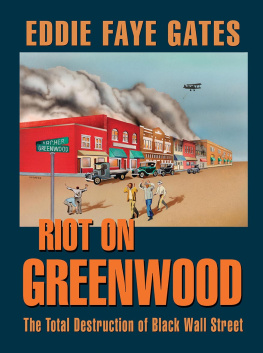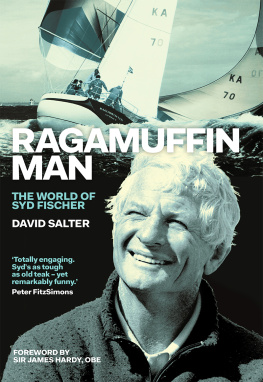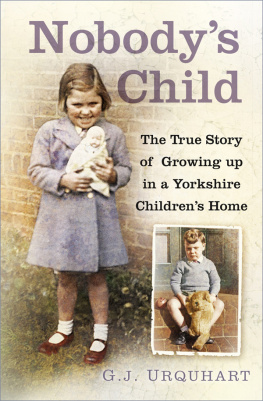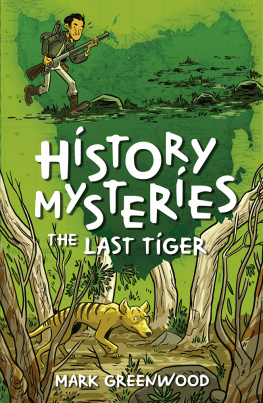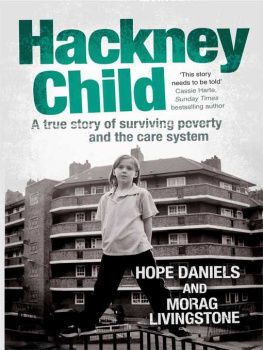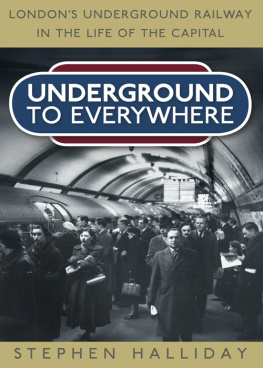The true history of a little ragamuffin.
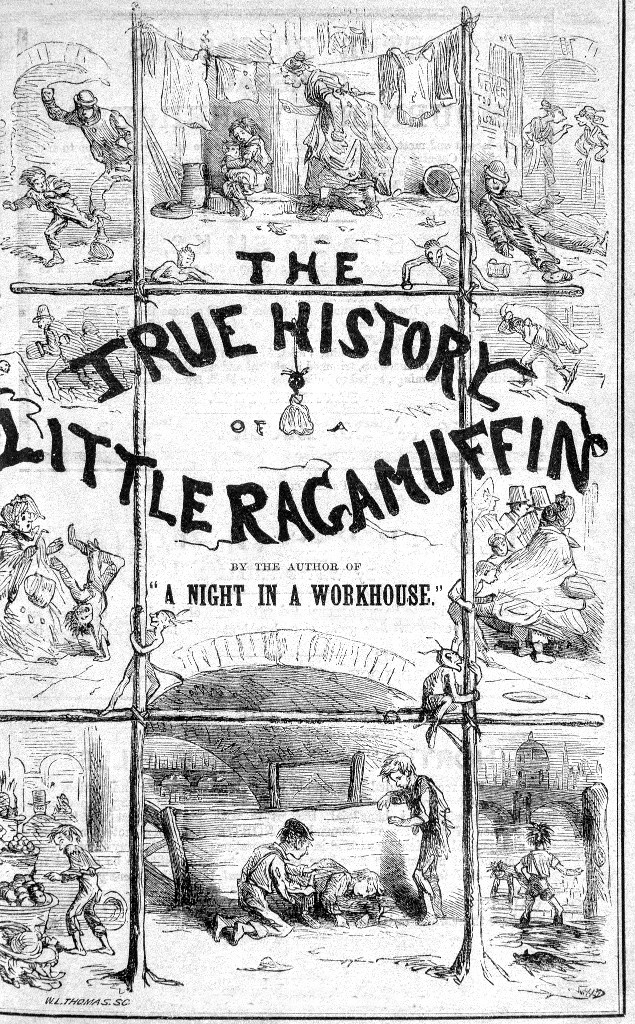
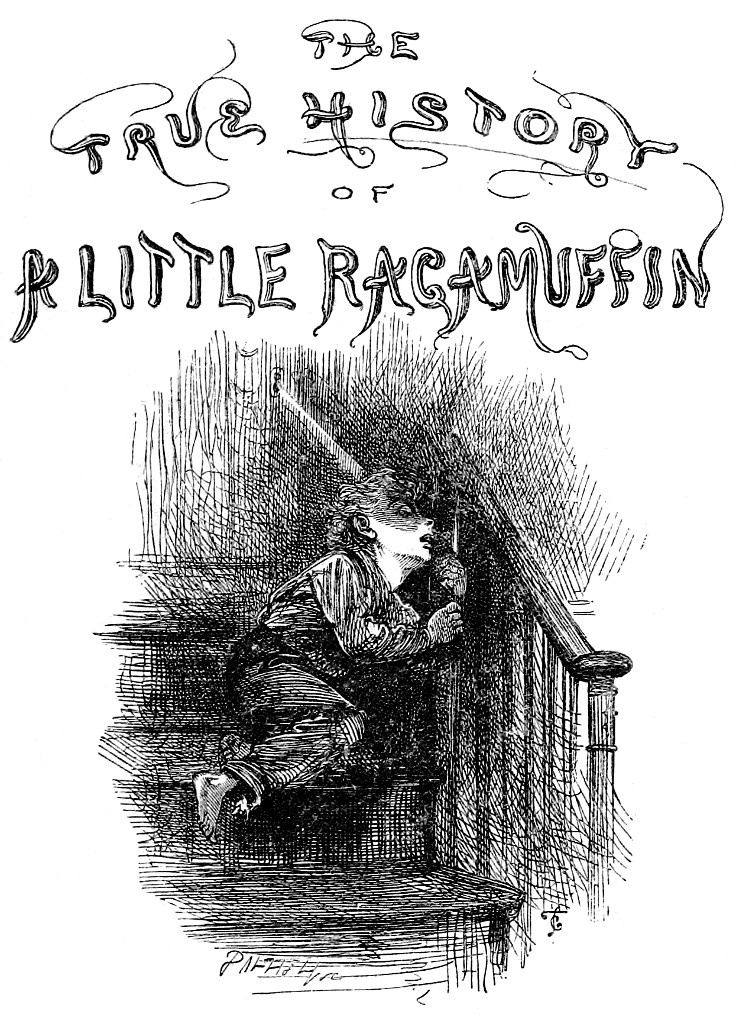
Chapter I. In which are narrated a few particulars of my birthplace and parentage.
I was born at Number Nineteen, Fryingpan Alley, Turnmill Street, in the Parish of Clerkenwell.
It is scarcely probable that the reader is acquainted with the locality in question, and even less probable, if he undertook a journey of exploration in search of it, that any great amount of success would attend his labours. This especially, if he addressed himself to the individual best qualified to give him the required information. This would be. the Clerkenwell costermonger. He may have resided within ear-shot of Clerkenwell Church bells all his life; nay, he may be a lodger in Turks Head Alley, which is not more than twenty paces from my alley, and still he will shake his head ignorantly in reply to your question. Fryingpan Alley, Turnmill Street! He never heard tell of it. He knows all the courts and alleys thereabout. Theres Rose Alley, and Lamb and Flag Court, and Croziers Alley, and Fringpun Alley. The last-mentioned comes closest to what you are inquiring after; but that cant be the one, because it is in Tummel Street. Even though he had a suspicion that your Fryingpan and his Fringpun, and his Tummel and your Turnmill were identical, it is very doubtful if you would gain advantage, your use of the full and proper terms being regarded by him as priggish affectation; and against all such it is the costermongers creed to set his countenance.
Nevertheless, Fryingpan Alley is a fact; a disgraceful one, probably, but one that is undeniable. Passing Clerkenwell Sessions House from Coppice Row, it is the second alley on the left-hand side of the way; and coming at it down Turnmill Street from the Smithfield end, it is on the right, past the coppersmiths and the great distillery, and next to Turks Head Alley. Except that the stone step at the mouth of the alley is worn quite through to the bricks beneath, and the name-board above has been renewed, its outward appearance is exactly the same as when, nearly twenty years ago, I used to live there: the same dingy, low-arched entryso low that the scavenger, with his basket on his shoulder, is obliged to slacken at his knees to enable him to pass under it, and so narrow that a shop-shuttera coffin-lid, almostwould serve as a gate for it.
As a boy, I was not particularly jovial or light-hearted, and the subject of coffins and funerals used to occupy a considerable share of my attention. There were always plenty of funerals going on in our alley, especially in the summer time; indeed, if it were not so, it would be no great wonder that Fryingpan Alley and coffins should be intimately associated in my mind, since it was a funeral of a very woeful sort that roused me from babyhood to boyhood, as it were, and set me seriously reflecting on the world and its ways. However, it will be time enough to give the particulars of that melancholy business when I have fulfilled the promise made at the beginning of this chapter.
The breadth of coffins and the narrowness of our alley used to occupy my thoughts a great deal, and there were very few of our neighbours whose height and breadth I had not considered, and settled within my mind how hard or how easy it would be to carry his body out.
Two persons in particular caused me tremendous anxiety on this accountthe one being the landlord of the Dog and Stile, out in Turnmill Street; and the other an elderly lady, who lived near the mouth of the alley. The publican, although he did not reside in the alley, was, nevertheless, there a great deal, chiefly in consequence of the many difficulties that stood in the way of his recovery of the pots and cans he lent to his customers; and if Mr. Piggot sometimes lost his temper while in pursuit of his property, it was really not to be wondered at. It was not at all an uncommon thing for him to discover the bright pewter borrowed of him overnight resting on the hob of a fire-place, half filled with the dregs of the coffee that had been boiled in it at breakfast, and so burnt and blackened as to require a vigorous application of Mr. Piggots broad, fat thumb, wetted and roughened with cinder-ash, before he could convince himself that the vessel bore his name and sign. He had been known to enter a room (he had a way of never knocking at a door) to take an Irish stew or a dinner of cabbage and bacon off the fire, and, tilting it all into the fender, walk off triumphantly with the gallon can it was cooking in. He used to work himself into the most dreadful passions on these and similar occasions, and to stamp and swear till his eyes rolled and the pimples on his nose stood out in a way that was terrible to witness. You shall never have a pot or can out of my house againmay I drop dead if you do! was the threat he was constantly using, rolling his glaring eyes up towards the ceiling as he spoke. But he never kept his oath. The very worst defaulter was never refused after a second, or, at the outside, a third application; and it would only have been what he was always asking for if, one fine morning, Death had taken him by the heels and laid him flat along the cobble-stones of our alley.
I often thought about it. What if such a horrible thing should happen! How ever would they lift him up and carry him round to his public-house? Even now, when he passed out loaded, though he went shoulder first and sidling, his cans rasped and clanked against the wall. True, he did not appear to be a very solidly-built man, and there were fellows in our alley who, as pushers of loads, would give in to no man; still, if once Mr. Piggots shoulders got blocked in the doorway, it was very certain that the harder they pushed the rounder he would become, and that they certainly would have a great deal of trouble with him.
But if I felt concern on poor Mr. Piggots behalf, what were my sensations as, I pondered on the chances of Mrs. Winkships demise, and its inevitable consequences? Mrs. Winkship was an elderly lady living at the entrance of the alley. If a single pound, she was full five stone heavier than Mr. Piggot, to say nothing of her being considerably shorter and thicker. But it was not entirely on account of her superior size that I felt more interest in Mrs. Winkships case than in the publicans. As for Mr. Piggot, so long as they succeeded in removing his body, how would not have troubled me in the least; indeed, so far from being affected by the fact of his dying, I have no doubt that, had I been informed that that event had taken place on his own premises, I should have greatly rejoiced that now all chances of the occurrence of the calamity that haunted me were at an end; but in Mrs. Winkships case, respectnot to say downright love and gratitudeentered very considerably into the question. She was a woman of business. I dont know exactly what she called herself, but she followed the business left by her husband, which was that of lending barrows and money to the many fruit-hawkers that lived in our alley. It was Mrs. Winkships boast that since Mr. W.s death, which had happened thirteen years ago, she had never journeyed out of Turnmill Street, except on the one occasion of her venturing as far as the Royal Coburg Theatre, at Lambeth, in the pantomime season, when she had slipped down the gallery stairs and sprained her ancle. Her constant station was the threshold of her own house, where, seated on an upturned coke-measure, with a nosebag full of chaff for a cushion, she kept watch the livelong day. The peculiar nature of her business, or, more properly speaking, of her customers, compelled it. Unless she caught the fellows when they returned home after disposing of their stock, and insisted on their squaring up before they went indoors, she was sure to be a loser.


